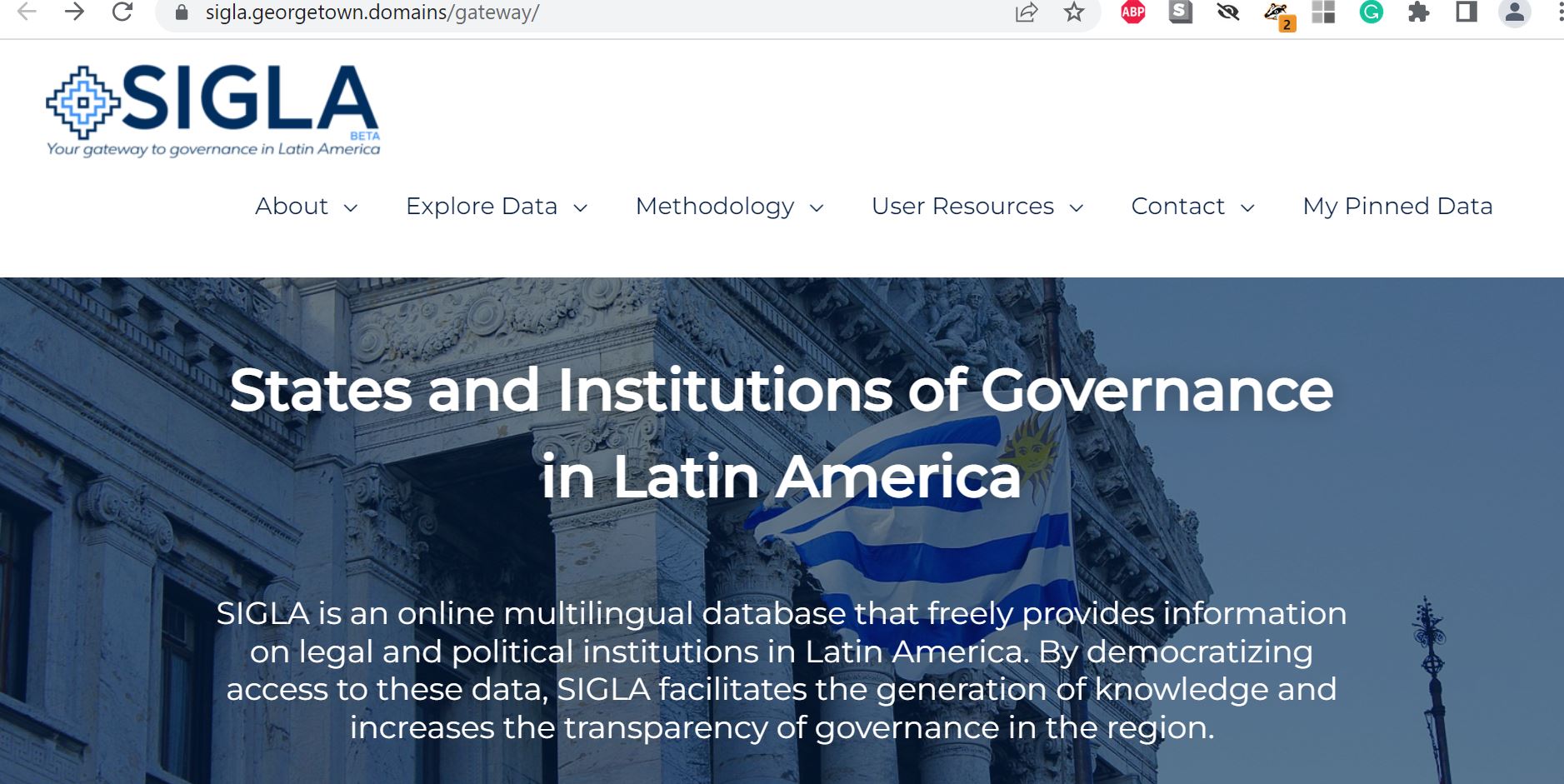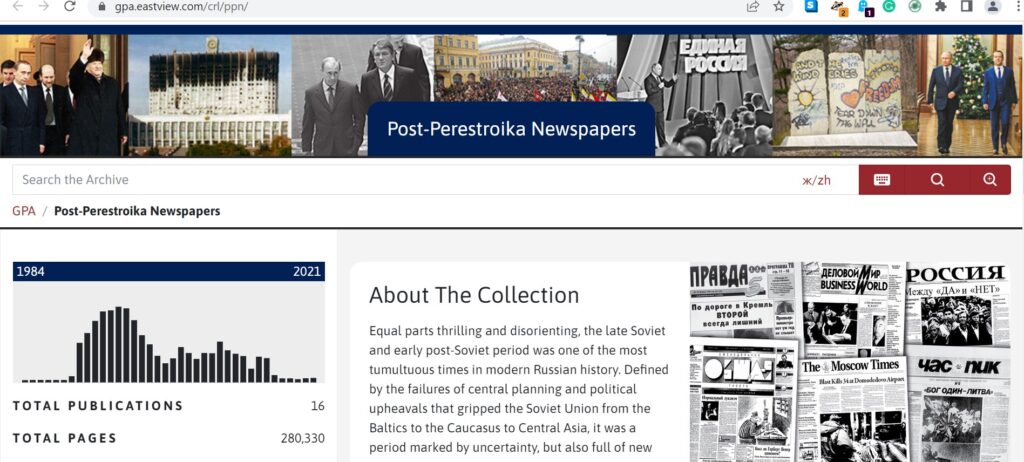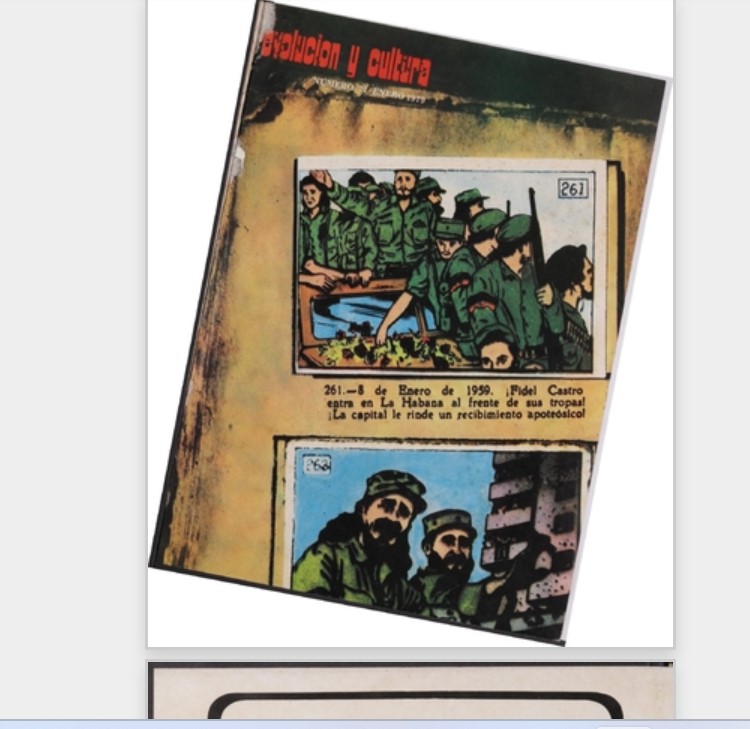Author: Liladhar
SIGLA: States and Institutions of Governance in Latin America Database
SIGLA (States and Institutions of Governance in Latin America, www.sigladata.org) is a multilingual digital database that freely provides information on legal and political institutions in Latin America. The beta version of SIGLA offers data on national-level institutions in Brazil, Colombia, and Mexico, as well as on international institutions. Ultimately, SIGLA will provide cross-nationally comparable, current and historical, qualitative and quantitative data on over 50 legal and political institutions in 20 Latin American countries in English, Spanish, and Portuguese.
Webinar on February 15: Ukraine Fights On: One Year Later! Episode no. 1
Note: Given the ever-changing situation in Ukraine, this event may be canceled or postponed on short notice.
At this webinar, held nearly one year after the full-scale Russian invasion of Ukraine began, women social activists and a lawyer from the SICH Human Rights Protection Group in Ukraine will provide updates on the current human rights situation and their documentation of the deliberate destruction of the civilian infrastructure in their country. The event includes a screening of the short documentary “Unbroken Women.” This event is the first in a three-part series about the Russia-Ukraine war and its impacts.
The event will be recorded for archival purposes.
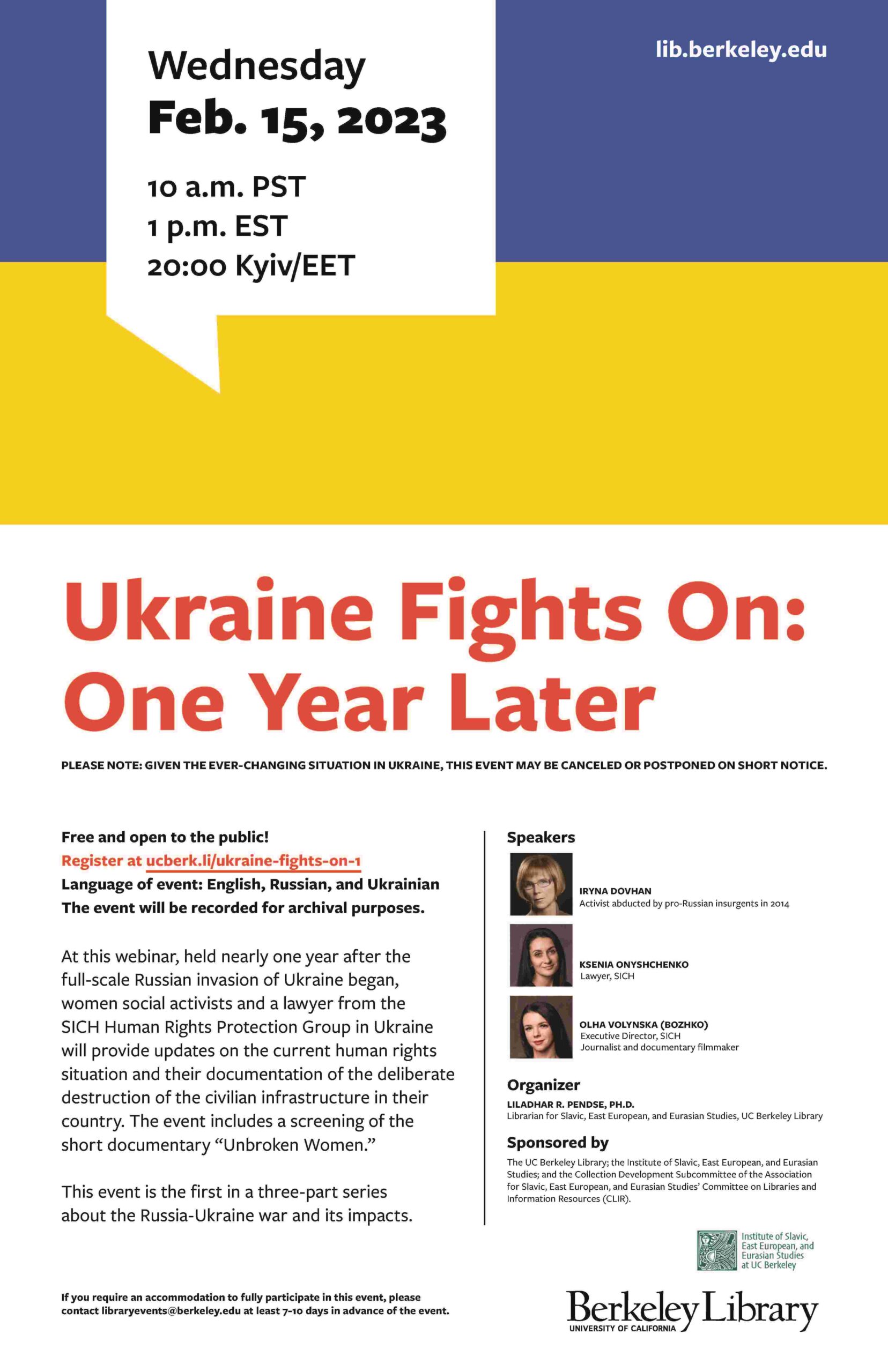
Black History Month Celebration at UC Berkeley Library on Thursday, February 9, 2022 (11 am to noon PST)
Date: February 9th, 2022
Day: Thursday
Time: 11 am to 12 noon PST
Please register here: http://ucberk.li/black-history-month-2023-event
Opening Remarks:
Associate Vice Chancellor of Enrollment Management
Dean of Undergraduate Admissions
Confirmed Speakers:
Professor & 1960 Chair of Undergraduate Education
African American Studies and African Diaspora Studies, UC Berkeley
—
Director, Asian American Studies Program; Co-Director, Council for Race and Ethnic Studies
Professor of Asian American Studies and African American Studies at Northwestern University
Associate Editor, American Quarterly
—
Professor Roopika Risam
Associate Professor of Film and Media Studies and Comparative Literature at Dartmouth College, where she is part of the Digital Humanities and Social Engagement Cluster.
—
Professor Kelly Baker Josephs
Anglophone Caribbean Literature and Digital Humanities, Department of English, University of Miami
Both Professors Risam and Josephs will speak about the Digital Black Atlantic project.

Post-Perestroika Newspapers accessible for the CRL Members
The Post-Perestroika Newspapers collection traces the evolution of post-Soviet Russia, with coverage from 1990 to 2016. Established soon before or soon after the collapse of the Soviet Union, the newspapers in this collection document the changes taking place in Russia, some with breathtaking speed, all the while embracing innovative journalistic methods and standards that were a far cry from the journalism of the Soviet period. These newspapers, some of which had a relatively short lifespan, nevertheless provide essential and critical insight into the events and personalities that defined post-Soviet Russian politics and history (Source:https://gpa.eastview.com/crl/ppn/).
To access these newspapers, please authenticate using the VPN or proxy from an off-campus location.
Trial of Brill’s Revolución y Cultura, 1961–2003 (ending February 21, 2023)
Revolución y Cultura, 1961–2003(Cuba)
Please access the trial through February 21, 2023, here
At UC Berkeley Library, we have several individual issues of Revolución y Cultura, however, Brill has produced a complete digitized archive of it that is searchable. We have set up a trial of this resource through February 21, 2023. We look forward to hearing your comments regarding the utility of this resource in your teaching and research. Please feel free to contact your librarian for the Caribbean and Latin American Studies here.
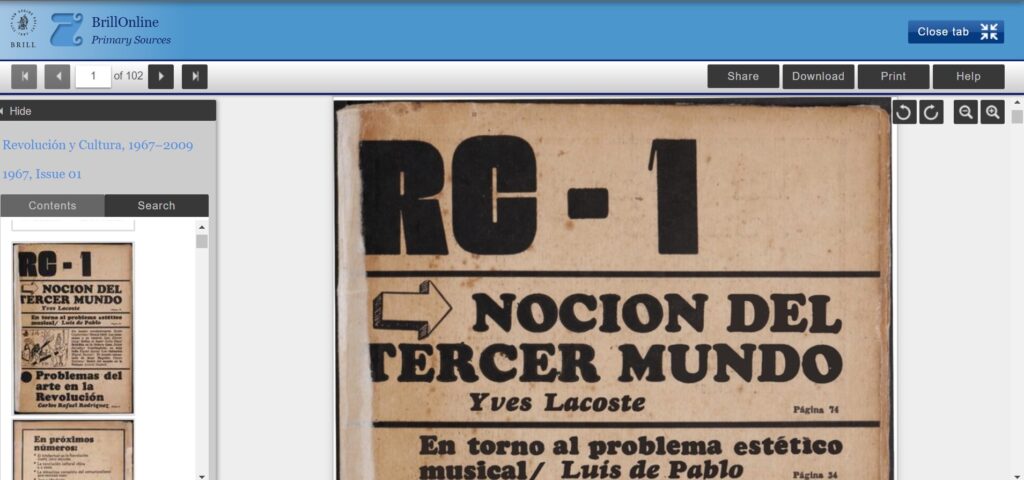
About:
Revolución y Cultura is a fundamental and often unique resource for the study of more than half a century of Cuban culture. Founded as a biweekly in 1961 under the title Pueblo y Cultura and continued in 1965 as the bilingual magazine Revolution et/and Culture and as RC in 1967, Revolución y Cultura has published uninterruptedly since March 1972. From its foundation until 1977, when the Cuban Ministry of Culture was created, it appeared as the official organ of Cuba’s National Council of Culture.
From 2004 to 2019 it was published both in print and electronically. Since mid-2019, Revolución y Cultura is published online only. Revolución y Cultura is listed in the UNESCO Portal of Culture of Latin America and the Caribbean (Source: Brill)
Call for papers: Wisconsin Slavic Conference
Wisconsin Slavic Conference
March 24-25, 2023
University of Wisconsin-Madison
Abstracts for 20-minute papers on any aspect of Slavic literatures, cultures (including film, music, and the visual arts), linguistics, and history are invited for the annual Wisconsin Slavic Conference. Comparative topics and interdisciplinary approaches are welcome and encouraged. The conference will be held in person at the University of Wisconsin-Madison on Friday and Saturday, March 24 and 25, 2023. Recent conference programs are available on the Wisconsin Slavic Conference website at https://gns.wisc.edu/2022/04/19/wisconsin-slavic-conference-2022/
This year’s keynote lecture will be delivered by Professor Yuliya Ilchuk (Stanford University).
To present a paper at the Wisconsin Slavic Conference, please submit a proposal by February 19, 2023.
A complete proposal consists of the following:
1. Author’s contact information (name, affiliation, postal address, telephone, and email).
2. Paper title
3. 300-500 word abstract
4. Equipment request (if necessary)
Email to send proposals: Jesse Kruschke jlkruschke@wisc.edu and Isabella Palange palange@wisc.edu.
Organizers:
Jesse Kruschke, Co-Chair of Wisconsin Slavic Conference, University of Wisconsin-Madison
Isabella Palange, Co-Chair of Wisconsin Slavic Conference, University of Wisconsin-Madison
Yekaterina Pak, Secretary of Wisconsin Slavic Conference, University of Wisconsin-Madison
Tepoztlán Institute 2023: fugitivity, marronage, abolition
TEPOZTLÁN, MORELOS, MÉXICO | July 19 – 26, 2023
Call for participants
DEADLINE TO APPLY: JANUARY 15, 2023Systems of colonization, of exploitation, of citizenship, and of exclusivity produce responses that can be coded as fugitivity and marronage. Those practices of alterity and freedom seek to elude force and violence, but they also invite new forms of placemaking and inclusivity. Abolition – of policing, of carcerality, of national borders, of hierarchical or privileged forms of citizenship – challenges the entrenched forms of the state and opens possibilities for other imaginaries. The Tepoztlán Institute, in its eighteenth year, asks participants to reflect on fugitivity, marronage, and abolition in their many forms in the past, present, and future. How have these practices of freedom been imagined, lived, contested, extended, and reinvented, from the colonial period to the present, across the Americas?
There is a long history of fugitivity and marronage across the Americas. The first maroons in the Americas were Indigenous people fleeing from encomiendas, slavery, and related forms of violence and subjugation in early colonial Hispaniola, and Indigenous practices of flight and assertions of autonomy continued throughout the colonial and national periods. From the quilombos of Brazil and the palenques of Colombia, Panama, Mexico, Peru, and the Spanish-speaking Caribbean, to the maroon societies of Jamaica, Suriname, and the United States, enslaved Africans also engaged strategically in fugitivity and marronage. Though these movements are often siloed, they are not separate: the history of fugitivity and marronage is also one of relationality among Black and Indigenous peoples. Contemporary Black, Indigenous, Latinx, feminist, and queer organizing against state violence and policing and for aesthetic, social, political, and territorial self-determination across the Americas brings these concepts into the present in palpable ways. Fugitivity and marronage have also been central to envisioning past, present, and future liberation.
Like fugitivity and marronage, abolition goes beyond the dismantling of oppressive institutions—it is also the building of autonomy and alternatives that render those oppressive institutions obsolete. In recent years, varied movements and sequences of struggle have forced the politics of abolition into the political mainstream. Many activists, critics, and scholars have framed the abolition of prisons, police, borders, citizenship, and other oppressive institutions as an extension of the struggle that led to the uneven abolition of slavery in the nineteenth century across the Americas. Others have drawn from the long history of fugitivity and marronage to consider the possibilities of escape from and resistance to systems of domination and extraction under racial capitalism, indigenous dispossession, and anti-Black racism. Abolition is one of several important concepts that have been employed within the Americas to imagine different forms of liberation. Taken together, fugitivity, marronage, abolition, and related ideas draw our attention to heterogeneous politics and practices by which another world is built out of and within the ruins of the present.
We invite reflections that address the concepts of, and links between, fugitivity, marronage, and abolition across disciplines, regions, communities, and temporalities. We foresee conversations across scholarly approaches that come from Indigenous studies, Black studies, slavery studies, Latinx studies, and borderlands studies, as well as queer theory and feminisms. Questions may include: Are fugitivity and marronage still applicable to our contemporary moment, or have new concepts supplanted them? What are the limits of bringing the idea of abolition to bear on the present? What is to be left behind or abolished, and what can be saved or repurposed? How have historical and cultural actors navigated the tensions between strategies of fugitivity or escape on the one hand, and inclusion or recognition on the other? How do the concepts of fugitivity, marronage, and abolition help us challenge or reimagine inherited notions of resistance, freedom, liberation, and so on? How can cultural production and representations of Black, Indigenous, and Latinx relationality in studies of fugitivity, marronage, and abolition escape the constrictions of disciplinary knowledge formation? What kinds of cultural production, speculative thought, and activism do fugitivity, marronage, and abolition enable and indeed require? How might movements benefit from more extensive cross-hemispheric dialogue about these issues?
Scholars, activists, and artists may address any historical period, and approaches may draw from a wide range of fields, including but not limited to, history, literature, cultural studies, media studies, art, art history, philosophy, race and ethnic studies, anthropology, and gender and sexuality studies.
IN ADDITION TO THE themes ABOVE, OTHER POTENTIAL THEMES MIGHT include:
● Indigenous, Black, and Latinx coalitions
● Indigenous and Black politics, autonomy, sovereignty, flight, refusal, and recognition.
● Incarceration and decarceration
● Abolitionist feminism
● Migration, detention, and deportation.
● Border abolition
● Asylum and sanctuary
● Fugitivity and patriarchy
● Anarchist theories and practices
● Capture and flight in/from the archives
● Law and legal history
● Queer marronage
● Marronage and sovereignty
● Abolition practices
● Abolitionist geographies
● Speculation/imagination as abolitionist practice
● The politics of policing and police abolition
● Infrastructures for abolitionist practice
● Fugitive thought/science/epistemologies
● Slavery and primitive accumulation
● Marronage and illicit, alternative, and informal economies
● Autonomy and autonomous practices
● Ecological and territorial struggles
The deadline for applications is January 15, 2023. For more information, please consult our website (www.tepoztlaninstitute.org) or write to us at tepoinstitute@gmail.com.
Trial of Afghan Central Press at UC Berkeley Library
We have set up a thirty-day trial of Afghan Central Press at UC Berkeley Library beginning November 15, 2022.
The vendor description is as follows,
“The Afghan Central Press collection brings together four national, Kabul-based publications of Afghanistan whose long runs and prominence provide a concentrated vantage point for understanding developments in Afghanistan for much of the twentieth century. The English-language Kabul Times is presented alongside Pushto publications Anīs (انیس, Companion), Hewād (هیواد, Homeland), and Iṣlāḥ (اصلاح, Reform).”
The collection provides full-text access to over fifty thousand individual issues in Dari (Persian), Pushto, and English languages.
The Afghan Central Press collection is hosted on Eastview’s Global Press Archive platform.
Cuba: Grito de Yara (10 October 1868)
Each year, on 10th October, the Cubans all over the world commemorate the call for national independence. The “Grito de Yara,” is one of many important events in the complex historical trajectory of Cuba that unleashed the potential of the national consciousness through rebellions against the Spanish imperial authorities. The full text of the “Manifiesto de la Junta Revolucionaria de la Isla de Cuba” can be read by clicking on the link here.
At UC Berkeley Library, despite our West Coast location and our Pacific Rim orientation, we have a large collection of books that will enlighten our readers about what does “Grito de Yara” means. The other essential Open Access source is dLOC (Digital Library of the Caribbean) where one can browse documents related to the “Grito de Yara.“
Below are some titles that might of interest to the readers of this blog. Since we believe in the equitable access, I am providing some links to the full-text of these items.
Below is a clip from a film,
Professor Rebecca Herman’s New Book Published: Cooperating with the Colossus A Social and Political History of US Military Bases in World War II Latin America Cooperating with the Colossus A Social and Political History of US Military Bases in World War II Latin America

Author:Rebecca Herman, the image is being used for academic, educational, noncommercial purposes only.
UC Berkeley’s Professor Rebecca Herman‘s (History) new book –Cooperating with the Colossus A Social and Political History of US Military Bases in World War II Latin America on our entanglement in Latin America since the World War II is one book that I feel honored to post about in this blog.
According to the Oxford University Press, the book has several interesting facets that are quoted from its website as follows,
- Offers a new perspective on the period of World War II and its importance in the longer history of US-Latin American relations
- Brings together the local, national, and international arenas in which the history of wartime basing unfolded
- Integrates the international history of US-Latin American relations together with local histories of labor, race, gender, and law
- Moves between the realm of high politics and the ground-level social and cultural histories of the communities surrounding US bases.
I am also pleased to post a video of her presentation at the CLAS-Berkeley.
We have access to its electronic avatar through our catalog. Thank you, Professor Rebecca Herman, for always motivating me to do my best to collect difficult to find materials from Latin America!
